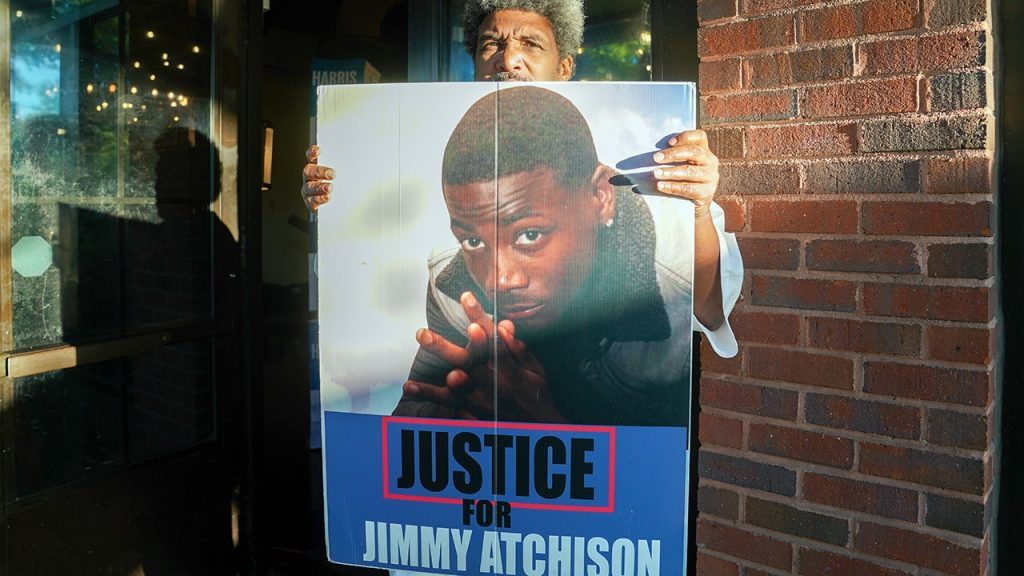A federal judge has dismissed all criminal charges against former Atlanta police officer Sung Kim in connection with the fatal shooting of 21-year-old Black man Jimmy Atchison. U.S. District Judge Michael Brown ruled that Kim’s actions were justified as “textbook self-defense” during an attempted arrest in January 2019. This ruling ends a complex legal battle that has spanned over two and a half years since the incident, marking a significant development in the discussions surrounding police conduct and accountability.
| Article Subheadings |
|---|
| 1) Background of the Incident |
| 2) The Judge’s Ruling |
| 3) Reactions to the Decision |
| 4) Legal Implications |
| 5) The Ongoing Conversation Around Police Accountability |
Background of the Incident
The shooting of Jimmy Atchison occurred in January 2019 when Atlanta police officers attempted to arrest him at an apartment complex based on an armed robbery warrant. Atchison was reportedly hiding under clothes in a closet when Sung Kim, a member of the FBI Atlanta Violent Crime Task Force, located him. According to various reports, when Kim confronted Atchison, he gave orders, including “show us your hands” and “don’t move.” However, Atchison did not respond verbally and instead made sudden movements that Kim interpreted as a threat, leading to the shooting.
The Judge’s Ruling
In his ruling, U.S. District Judge Michael Brown stated that the self-defense claim was “overwhelmingly supported by the evidence,” making it perplexing that the charges were ever brought against Kim. The judge highlighted the context of the situation, including the officer’s belief that Atchison could have been reaching for a weapon. The charges dismissed included involuntary manslaughter, felony murder, and aggravated assault. Judge Brown pointed out that under the doctrine of Supremacy Clause immunity, state prosecution of a federal officer is generally not permissible when acting within the scope of their duties.
Reactions to the Decision
The ruling was met with mixed reactions from the community and families affected by police violence. Attorney Don Samuel, representing Kim, stated,
“It is hard to celebrate when a young man died; but there is no doubt that the decision of the Fulton County DA’s office to compound the tragedy by prosecuting Sung Kim was an inexcusable abuse of prosecutorial discretion.”
Meanwhile, Jimmy Hill, Atchison’s father, expressed the ongoing pain and loss he feels, indicating that the fight for justice for his son would continue despite the ruling.
Legal Implications
The case has raised critical questions about police conduct, accountability, and the legal protections afforded to law enforcement officers. Legal experts suggest that this ruling sets a precedent regarding the use of force, especially in situations involving federal officers. Furthermore, the ruling underscores the complexities entailed when evaluating officers’ decisions during high-stress incidents, particularly those that involve a perceived threat to their safety.
The Ongoing Conversation Around Police Accountability
This incident is part of a larger national dialogue surrounding police practices and accountability. Advocates for reform argue that cases like Atchison’s showcase the urgent need for systemic changes within law enforcement agencies. With incidents of police violence and subsequent legal outcomes sparking community outrage, discussions continue on how to ensure accountability without undermining the officers’ ability to perform their duties effectively. The decision in this case may further fuel calls for additional regulations and oversight to address community safety and police interactions.
| No. | Key Points |
|---|---|
| 1 | A federal judge dismissed charges against former police officer Sung Kim in the shooting of Jimmy Atchison. |
| 2 | The judge emphasized overwhelming evidence of self-defense in his ruling. |
| 3 | Atchison’s family expressed their ongoing grief and disappointment with the legal process. |
| 4 | The case raises significant questions regarding police accountability and legal immunity for federal officers. |
| 5 | The incident is representative of broader conversations around police reform in the U.S. |
Summary
The dismissal of charges against Sung Kim marks a pivotal decision in the ongoing discourse surrounding police accountability and self-defense laws in the United States. As communities continue to grapple with the implications of police interactions and the legal frameworks that govern them, the tragic loss of Jimmy Atchison serves to illuminate the critical challenges faced in seeking justice and systemic reform.
Frequently Asked Questions
Question: What led to the shooting of Jimmy Atchison?
The shooting occurred during an arrest attempt for an armed robbery warrant when Atchison was confronted by officers, and he allegedly made sudden movements that led Sung Kim to believe he was in danger.
Question: What were the charges against Sung Kim?
Kim faced charges including involuntary manslaughter, felony murder, and aggravated assault related to Atchison’s death, all of which were dismissed by the federal judge.
Question: What is Supremacy Clause immunity?
Supremacy Clause immunity refers to the legal principle that federal officers cannot be prosecuted by state authorities when performing acts authorized by federal law within the scope of their duties.
